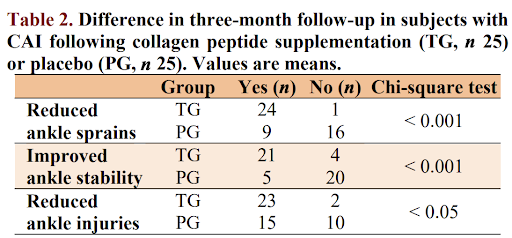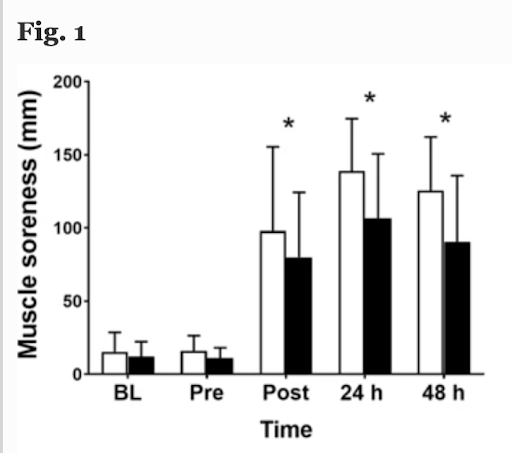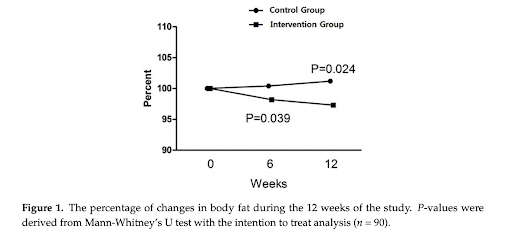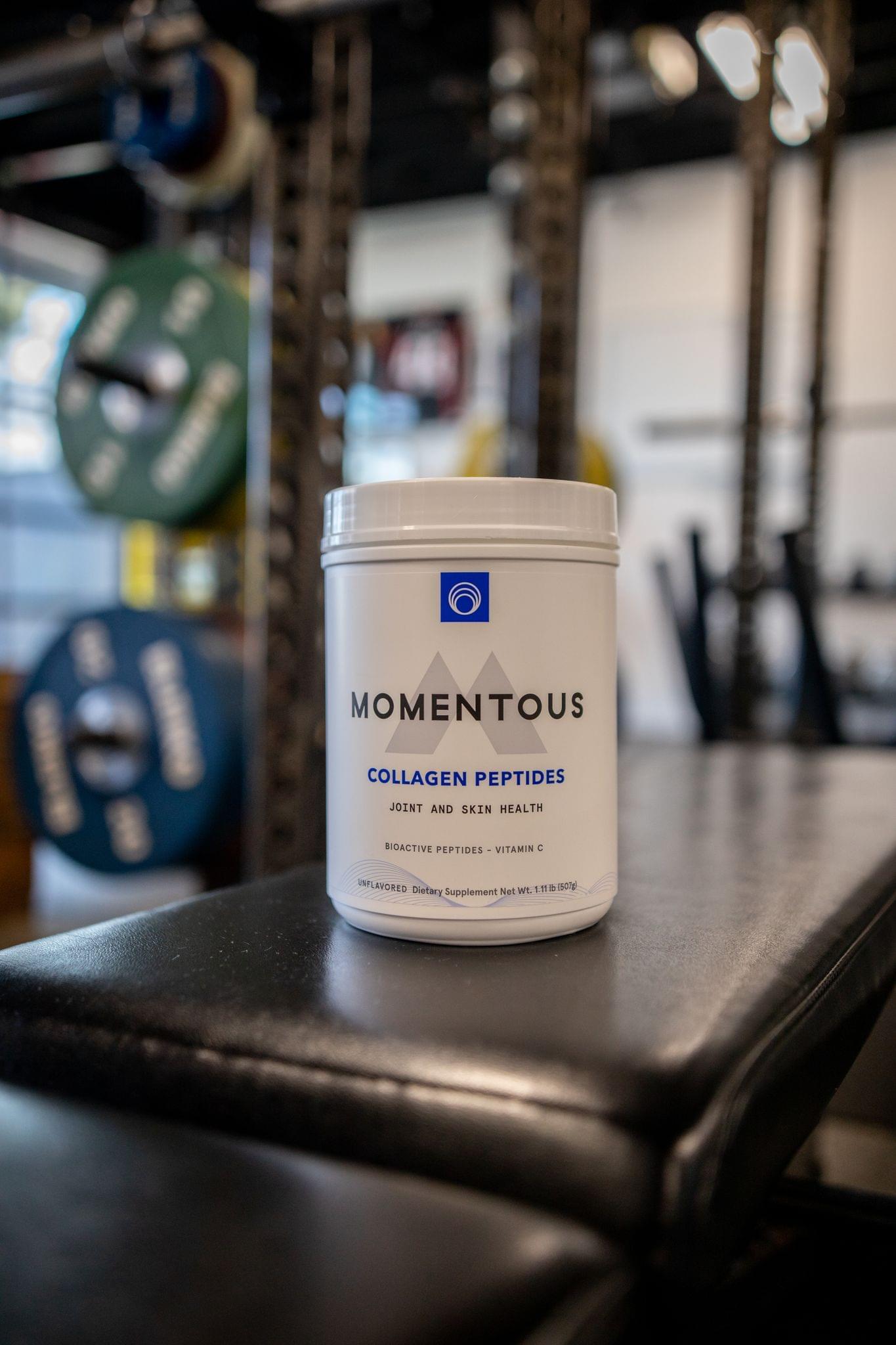The Benefits of Collagen Peptides
This review will analyze the science behind collagen supplementation for health, performance, and fat loss.
There are a number of scientifically validated benefits to collagen peptide supplementation that we will break down based on the type of benefit provided.
But What Exactly Are Collagen Peptides?
Simply put, collagen peptides are small strands of protein that make up the overall larger collagen protein. You can think of collagen peptides as the glue that holds your body together in a sense. In fact, collagen is the most abundant protein in your body. It is the major component for your skin, tendons, ligaments and muscle 1. It’s no surprise then that collagen is used to perform multiple critical functions, including providing structure to organs, and improving bone strength.
Skin Health
Collagen is one of the major proteins found in your skin where it plays a critical role in strengthening the tissue, improving elasticity and maintaining hydration. As we get older, our body begins to make less and less collagen, and this process is thought to contribute to the formation of wrinkles 2.
Multiple publications have shown that supplementation with collagen, or collagen peptides, can help slow the progression of wrinkles and dry skin 3, 4, 5, 6. More specifically, these studies indicate that approximately 5 grams of collagen increases skin elasticity. This works through the production of more collagen as well as two other critical proteins called elastin and fibrillin. Some holistic practitioners claim that supplemental collagen can help prevent acne, amongst other skin conditions, but no scientific studies back up these claims.
Anecdotal evidence also exists for collagen improving nail and hair growth. Here there is slightly more evidence as a dermatology paper indicates that long term use (24 weeks) of collagen correlated with an increase of 12% nail growth rate and a decrease of 42% in the frequency of broken nails 7.
Summary: Science strongly supports improved skin care, with weaker evidence backing benefits for nails and hair.
Lean Muscle Mass
For many years, people ignored collagen as a muscle-protein building supplement, based on the fact that it isn’t a “complete protein” meaning it doesn’t have a complete amino acid profile. What is a complete protein? Well, all proteins are made up of various combinations of twenty amino acids. A complete protein, like whey, contains all 20. Collagen is incomplete as it only uses three of the twenty amino acids.
As you can imagine it came as quite a surprise when multiple studies looking at resistance training showed that collagen boosts lean mass gains 8, 9, 10.
To be clear, each of these studies were examining lean mass growth. Typically, when you’re training and you gain lean muscle mass, it’s from additional muscle being built. Therefore, the strength and conditioning field often uses “lean mass” as a surrogate for “muscle mass.”
With collagen supplementation, this is a problem…
To phrase it another way. If you gain muscle mass then you’ve always increased your lean mass, but when you gain lean mass you have NOT always increased your muscle mass. How? You can increase bone density, your muscles can hold more water, you can build thicker/fuller tendons, etc. In each of those cases, you have more lean mass, but no more muscle mass.
Sadly, this is exactly what turned out to be the case for collagen. A pivotal study using intermediate level trained men showed that collagen supplementation increased lean mass, but had NO effect on muscle size over 12 weeks 11. The researchers believe that the collagen supplementation instead increased connective tissue growth, which was backed up by a second study 12.

Summary: Collagen supplementation increases lean mass in resistance training individuals through growth of connective tissue such as tendons but does not DIRECTLY increase muscle mass. Strength increases vary from study to study.
Connective Tissue Health
What good is a thicker tendon anyway? Should we even care?
Well, tendons connect our muscles to our bones, allowing force from our muscles to be transferred through our skeleton. So, their health is indeed very important. Collagen is a major component of your tendons, and we lose significant amounts of it as we age. This leaves your joints weaker, more injury prone, and more susceptible to pain 13.
The good news is that supplemental collagen allows the body to lay down more collagen in your connective tissues over time, delaying this age related breakdown that leads to more pain and potentially injury 14.
There’s a wealth of research showing that collagen can impact your connective tissues.
Faster Injury Recovery
One study examined 20 athletes with Achilles inflammation, pain and/or stiffness 15. Each participant participated in physical therapy, but half of the group took collagen. After 6 months, those taken the supplemental collagen saw faster recovery, had less pain and swelling, and returned to their sport of choice faster as well.
In another second study, 50 athletes with chronic ankle issues were split into two groups, those given collagen and those given a placebo. Again, the collagen group saw improved joint function at the six month mark 16.

Reducing Pain
All told, we were able to find 5 studies that indicated collagen supplementation can reduce joint pain 17, 18, 19, 20, 21. Doses and types of collagen differed among the studies, as did the activity level of the participants, however in each case, collagen improved the pain level compared to the control groups. Several of these studies are “double blinded” to remove the bias from the study. Overall, they are of a high quality.
Finally, a single study indicates that collagen supplementation can alter muscle damage as men consuming 20 grams per day had reduced muscle soreness and performed better in a secondary exercise bout at 48 hours 22.

Summary: Collagen supplementation improves recovery time post injury and reduces joint pain
Fat Loss
Interest around whether collagen could impact weight loss was initially driven by studies in mice and rats, where collagen clearly had impacts on fat gain. It’s important to distinguish that these studies didn’t show collagen causing fat loss, but rather supplemental collagen prevented weight GAIN 23, 24,25. Interestingly, the decreased fat accumulation appears to occur without a reduction in food consumption, indicating that you gain less fat while eating the same amount of food 26. As such, the collagen may be impacting either metabolic rate, inflammatory responses, or both.
So far, the anti-fat accumulation effects of collagen seem to be translating to humans. Multiple studies indicate that supplementation of collagen (up to 20 grams per day) prevents fat accumulation and improves body composition 27,28,29,30,31. To say it another way, collagen isn’t going to make you lighter, but it may prevent fat accumulation over time.

Summary: Collagen supplementation can improve body composition through increasing lean mass, and through prevention of fat storage.
How to Supplement with Collagen
Depending upon what aspect of your life you’re trying to improve, the amount of collagen you need to take differs.
Goal | Collagen Dosing |
Improve Skin | 10 grams per day |
Recovery from Injury | 15-20 grams per day* |
Reducing Body Fat | 20 grams per day* |
*If you’re going to take more than 10 grams per day, I think it makes the most sense to split your collagen dose into two time periods. The half-life of collagen appears to be about 4 hours and collagen levels return to baseline about 12 hours after consumption 32.
The Best Collagen Peptides
As far as brands, we’re a big fan of the Momentous collagen product as the main component was clinically tested in a randomized, double blinded study 33. Additionally, as with all Momentous products, the highest quality products are used to build the supplement. Additionally, the product is 100% guaranteed to be free of any unwanted contaminants of any kind. This is a big deal, as many protein supplements have been shown to be loaded with heavy metals and other products you do NOT want to bring into your body.
Want to Give Collagen Peptides a Try?
We have worked out a 25% discount with the code M2PN25 when you subscribe to the product. Even better, you’ll continue to receive a 15% discount on all future orders.
Just remember that to feel the benefits of collagen peptides, you need to take them consistently for several weeks to feel and see the results.

How to Take Collagen Peptides
You can simply mix the collagen peptides with a glass of water and chug it down pre workout for optimal results. If you don’t like that approach though, you can also add the collagen peptides to your post workout drink as well. There will be a slight delay in getting the peptides into your body but you should still experience nearly all of the benefits.
If you have any questions, please feel free to reach out and contact us! We’re here to help.
Learn More With M2!
At M2, we are always staying on top of the latest research regarding health, nutrition and supplements. That's why we're launching The M2 Certification Series! This will be a 5-course series that will start with the Gut Biology Course! If you want go learn more, get first access, and early bird pricing, click below.




